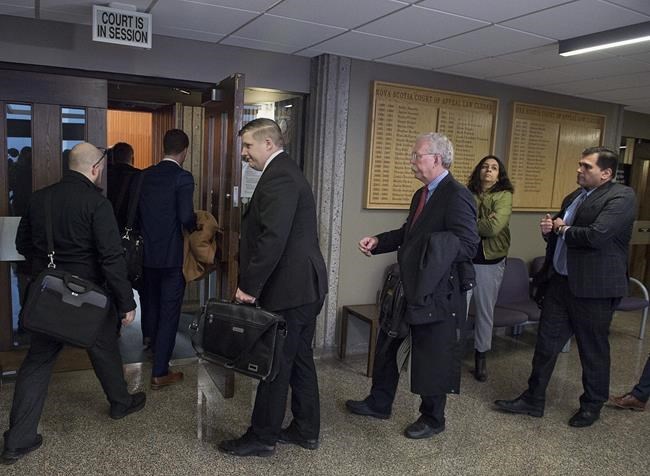TORONTO — The Quadriga cryptocurrency exchange that saw millions of dollars disappear just as its founder died was a "fraud" and Ponzi scheme, according to the Ontario Securities Commission.
The regulator said Thursday that Vancouver-based Quadriga's late founder Gerald Cotten committed fraud by opening accounts under aliases and crediting himself with fictitious currency and crypto asset balances, which he traded with unsuspecting clients.
Cotten, the OSC said in a new report, ran into a shortfall in assets available to satisfy client withdrawals when the price of the crypto assets changed. He started running a Ponzi scheme that covered the shortfall with other clients’ deposits, the agency determined.
"What happened at Quadriga was an old-fashioned fraud wrapped in modern technology," the OSC said.
"Quadriga did not consider its business to involve securities trading and it did not register with any securities regulator. This lack of registration facilitated Cotten's ability to commit a large-scale fraud without detection. So did the absence of internal oversight over Cotten."
The OSC spent 10 months analyzing trading and blockchain data, interviewing key witnesses, collaborating with overseas regulatory bodies and using third-party and bank information to reconstruct what was going on at Quadriga in the months leading up to 30-year-old Cotten's death.
Cotton died due to complications of Crohn's disease during his December 2018 honeymoon in India, where he was also opening an orphanage.
Around the same time, Quadriga users reported roughly $190 million in missing cryptocurrency.
Cotten's widow tried to locate passwords for Quadriga accounts, but Jennifer Robertson said she couldn't find any her husband had written down. The laptop he used was also encrypted, she testified, when Quadriga sought creditor protection last year.
Robertson has no comment on the OSC report, her lawyer Richard Niedermayer said in an email to The Canadian Press.
On Thursday, the OSC attributed about $115 million of the $169 million clients lost to Cotten's "fraudulent" trading.
Another $28 million was lost when Cotten used client assets on three external crypto asset trading platforms without authorization or disclosure.
The OSC said he also misappropriated millions in client assets to fund his "lavish" lifestyle and because he was in sole control of the company ever since 2016, he "ran the business as he saw fit, with no proper system of internal oversight or controls or proper books and records."
"Quadriga clients could not have known what Cotten was doing," said the OSC.
Those clients entrusted their money and crypto assets to Quadriga, which provided "no meaningful insight" into how those assets were being stored, moved and spent and instead gave false assurances about asset storage.
By the time the OSC started investigating, over 76,000 clients — about 40 per cent of them Ontarians — were owed a combined $215 million
Ernst & Young, Quadriga's bankruptcy trustee, was only able to recover $46 million in assets to pay out to clients.
"OSC Staff would likely have pursued an enforcement action against Cotten and Quadriga," the agency wrote in its report.
"However, this is not practical given that Cotten is deceased and Quadriga is bankrupt, with its assets subject to a court-supervised distribution process."
Jeff Kehoe, the director of the agency's enforcement branch, said in a statement that it was unusual, but necessary for the OSC to release the investigative report.
“While public release of an investigative report is rare, we believe the tens of thousands of Ontarians who entrusted Quadriga with their money and crypto assets deserve to know what happened,” he said.
“Our aim in making this information public is also to prevent this type of situation from recurring.”
This report by The Canadian Press was first published June 11, 2020.
Tara Deschamps, The Canadian Press



